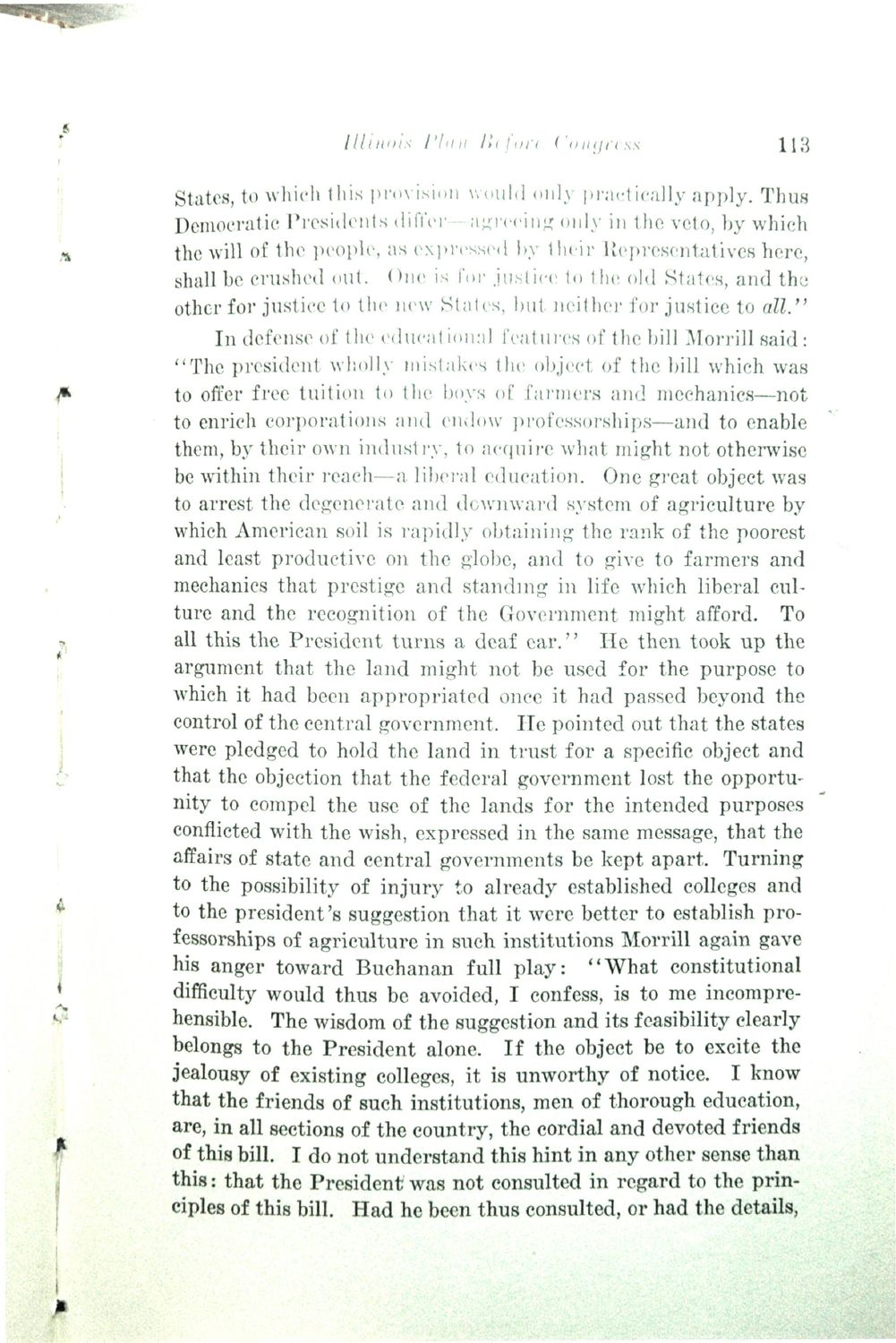| |
| |
Caption: Book - History of the University (Powell)
This is a reduced-resolution page image for fast online browsing.

EXTRACTED TEXT FROM PAGE:
Illinois Plan Before Congress 113 States, to which this provision would only practically apply. Thus Democratic Presidents differ—agreeing only in the veto, by which the will of the people, as expressed by their ^Representatives here, shall be crushed out. One is for justice to the old States, and the other for justice to the new States, but neither for justice to all." In defense of the educational features of the bill Morrill said: "The president wholly mistakes the object of the bill which was to offer free tuition to the boys of farmers and mechanics—not to enrich corporations and endow professorships—and to enable them, by their own industry, to acquire what might not otherwise be within their reach—a liberal education. One great object was to arrest the degenerate and downward system of agriculture by which American soil is rapidly obtaining the rank of the poorest and least productive on the globe, and to give to farmers and mechanics that prestige and standing in life which liberal culture and the recognition of the Government might afford. To all this the President turns a deaf ear." He then took up the argument that the land might not be used for the purpose to which it had been appropriated once it had passed beyond the control of the central government. He pointed out that the states were pledged to hold the land in trust for a specific object and that the objection that the federal government lost the opportunity to compel the use of the lands for the intended purposes conflicted with the wish, expressed in the same message, that the affairs of state and central governments be kept apart. Turning to the possibility of injury to already established colleges and to the president's suggestion that it were better to establish professorships of agriculture in such institutions Morrill again gave his anger toward Buchanan full play: "What constitutional difficulty would thus be avoided, I confess, is to me incomprehensible. The wisdom of the suggestion and its feasibility clearly belongs to the President alone. If the object be to excite the jealousy of existing colleges, it is unworthy of notice. I know that the friends of such institutions, men of thorough education, are, in all sections of the country, the cordial and devoted friends of this bill. I do not understand this hint in any other sense than this ? that the President was not consulted in regard to the principles of this bill. Had he been thus consulted, or had the details,
| |